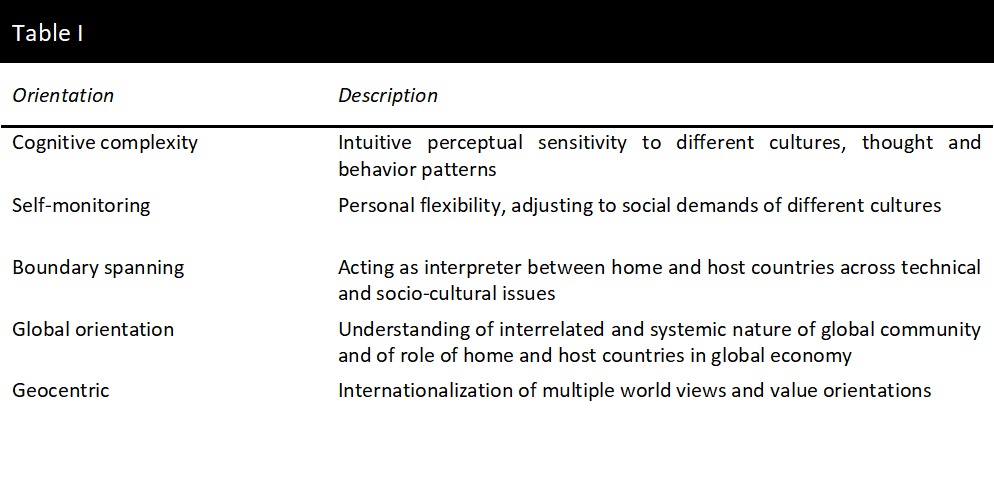The power of cultural influence on managerial behavior in organizations

Introduction
One of the key management and leadership issues for the year 2020 and beyond has been a concern over the ability to manage in different countries and cultures. The models of leadership that we have come across so far deal with context in a comparatively narrow manner. The country and the culture in which an organization operates is another critical aspect of context which creates other demands on corporate managers.
The demand for international competence in working with different country nationals, and with different belief and value systems, is now growing more rapidly than in the past, for several reasons, including:
- international recruitment to overcome graduate surpluses;
- cross-border mergers, acquisitions and joint ventures; and
- continuing improvements in communications technology.
What management and leadership styles will be required to deal with this environment?
The Asian manager
We can make an attempt to profile the typical Asian manager at the turn of the century. They will be graduate with a postgraduate degree and will speak fluently at least one Asian language as well as English, and possibly Chinese. Experienced in working for multinationals, they would have worked around Asia and will understand senior management operations in the USA, Japanese and European settings. We conclude:
Their most important attribute is the most self-evident. The Asian executive of the present and future needs to be cosmopolitan in the truest sense of the word, at ease socially, linguistically and culturally in all the countries of Asia.
The Asian manager is someone who endeavors to work effectively in different cultures. They understand the languages (or at least endeavor to), the customs and the business-political systems of the countries where their companies operate and also have a broader Asian outlook. This implies that new leadership and management development strategies are required. One local consulting firm is cited as arguing that, as companies have not formulated strategies to deal with these issues effectively, the onus lies with individual managers to establish their own career goals and to look for the businesses which will offer appropriate opportunities and experiences.
The challenge of culture
The challenge of culture to management in my view is the ability to understand, cooperate with, manage and do business with other cultures from the standpoint of operations.
Success or failure depends upon the degree to which people who have different ways of doing things and different priorities can work together. Intercultural relationships are fragile. Countless hazards within an organization’s work flow are created by communication problems, cultural differences in motivational and value systems, diverse codes of conduct, even differences in orientation to fundamentals such as interpretations and practices of core values.
Let me quote some examples here.
The problem of technology transfer experienced by a multinational manufacturing company, in terms of three lessons they learned from their mistakes.
The first lesson concerned the conflict between efficiency and relationships. The local company lost its competitive position to her competitor because:
the quality of interpersonal relationships is considered less important than efficiency, costs, timing and deadlines. Managers concentrated on efficiency and thus failed to develop the necessary rapport, trust and mutual understanding. Chinese orientations tend to favor “guan xi” more than other cultures.
The second lesson concerned the conflict between truth and face. The company’s engineers caused great offence with their communications style while helping their counterparts with fabrication operations. They would tell a Japanese directly when they had done something wrong. This hurt Japanese sensibilities as it implied loss of face. Westerners may feel that the Japanese were “beating about the bush” and would actually say “yes” when they mean “no”. Americans attribute achievement and failure to the competitive individual. The Japanese in contrast value teamwork and harmony. So, US style communication of praise and criticism caused great discomfort.
The third lesson concerned the conflict between work and family. Local managers found that work in Singapore is considered a central life interest, but that family responsibilities also take priority.
New needs
So what type of managers do we need today to manage such cultural diversities? I call it cognitive complex self-monitoring managers who have global perspectives and boundary spanning capabilities, with a geocentric and not an ethnocentric value orientation. In layman terms, what it means is that they are able to make a useful distinction between technical competence and contextual competence.
Technical competence concerns industry knowledge, functional expertise, and knowledge of the role of the subsidiary and the company’s global strategy while contextual competence concerns the ability to:
- Understand home and host country value orientations;
- Speak the language with conversational fluency;
- Adapt management practice to local conditions;
- Recognize the impact of culture when introducing change;
- Focus on global performance, not local results;
- Distinguish technical from social information and act as a “boundary-spanning interpreter” for both home and host country personnel and decision-makers; and
- Balance need for control and need for flexibility.
From these specific technical and contextual skills and abilities, it became obvious what “superordinate value orientation and set of managerial strategies” are needed for the global manager (see Table I).
For managers to practice “cognitive complexity”, it means that “multiple solution models” are used rather than “one best way” or the “tested-and-proven way” approach to solving management issues. The development of such cognitive flexibility and complexity is best achieved through an “organizational effectiveness” program or OE rather than through the typically clinically business school case approach.
Where managers are self-monitoring, they possess the ability to perceive the behavior and thinking patterns associated with differing value orientations and match their behavior to the demands of the orientation. We surveyed a “small but select sample of large multinationals” in Asia to identify general guidelines for developing the key success factors. The results showed that many companies emphasize task-related knowledge at the expense of cross-cultural understanding that tends to affect organizational effectiveness. It seems clear that an ethnocentric approach to management style and competence, that ignores the demands and challenges of contrasting cultural contexts, is inadequate, unrealistic and impractical.

Copyright@dralvin2020
CMC-AF






